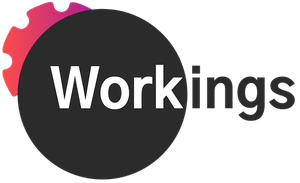The Story
When I was 24, I had a job writing speeches for a packaged meats executive. I took the job because when you are 24 you believe that writing about the packaged meats industry could easily lead to writing for The New Yorker. The trajectory looked smooth. Inevitable really. The problem was: I had no idea what I was doing. Writing about the packaged meats industry might sound absurd—and indeed it was—but when you know very little about packaged meats and even less about industry, it can also seem quite difficult.
It took me ages to write these speeches and for one in particular, I ended up staying at the office overnight to meet a morning deadline. During the night, I got really tired, and I felt the need to rest for a few minutes. I had a tiny office, so I lay down under my desk, on my back, my feet sticking out à la the Wicked Witch of the West.
While I was lying there, the security guard was doing his rounds of the floor. When he saw me, apparently his professional instincts just abandoned him entirely because he started screaming. Screaming his big bald head off. Terrified by this big bald head screaming at me from the doorway, I screamed back.
It was like that scene where ET and 7-year-old Drew Barrymore meet for the first time: a bizarrely long episode of high-pitched mutual screaming.
Until that night, the security guard and I had hardly spoken. But after that—perhaps because we had revealed to one another how fundamentally unfit we were to perform our respective jobs—we became friends.
My Concern
For those of us who now work 100% remotely, is the sweet serendipity of work friendships like this gone forever?
There was so much that was terrible about working in an office, and I’m totally convinced (by Steyer’s results alone) that people can be more productive working from home. I also agree with those who have debunked the notion that random office interactions produce tons of bright ideas.
But the relationships that grew not just from sharing goals and tasks but from sharing space? Those connections had intrinsic value—they mattered not because of what they produced but simply for their own sake—and I think I’ll always miss them.
My Questions
When it comes to connection and a sense of community, what do you even want from work? (Maybe the sense of connection I crave is unusual, so please set me straight before I facilitate this listening session with the Steyer team next week.)
If you do crave connection at work, and especially if you operate remotely, what things do you do to build meaningful relationships, not just with your manager or direct reports, but with work people more broadly? As always, I’d love to hear from you via email: kwalton@steyer.net
Thanks for reading,
Kate
Photo by Osman Rana on Unsplash


 Hello from Steyer! This issue of Workings contains a story, a concern, and some questions—in that order.
Hello from Steyer! This issue of Workings contains a story, a concern, and some questions—in that order.